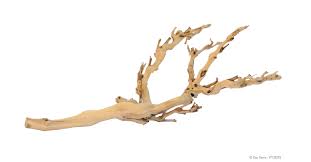branch
英 [brɑːntʃ]
美 [bræntʃ]
- vt. 分支;出现分歧
- vi. 分支;出现分歧
- n. 树枝,分枝;分部;支流
- n. (Branch)人名;(英)布兰奇
使用频率:

记忆方法
将“branch”想象为树枝,它从树干延伸出来,形成分支。这样的视觉联想有助于记忆单词的含义,即“分支”或“分部”。
以上内容由AI生成, 仅供参考和借鉴
中文词源
branch 分枝
词源不详。可能来自break, 分开的。
英语词源
- branch
-
branch: [13] Branch comes via Old French branche from late Latin branca ‘paw’, but its ultimate origins are not known. In other Romance languages it retains more of its original Latin sense (Spanish branca ‘claw’, for example, and Romanian brinca ‘hand, paw’). The semantic connection between ‘limb of a tree’ and ‘appendage of a person or animal’ is fairly straightforward (compare BOUGH).
- branch (n.)
- c. 1300, braunch, "limb of a tree" (also used of things analogous to it, especially geographic features), from Old French branche "branch, bough, twig; branch of a family" (12c.), from Late Latin branca "footprint," later "a claw, paw," which is of unknown origin, probably from Gaulish. The connecting notion would be the shape (compare pedigree). Replaced native bough. Meaning "local office of a business" is first recorded 1817, from earlier sense of "component part of a system" (1690s).
- branch (v.)
- "send out shoots or new limbs," late 14c., also, of blood vessels, family trees, etc., "to be forked," from branch (n.). Meaning "to spread out from a center, radiate" is from c. 1400. Related: Branched; branching.
权威例句
- 1. When in danger, the anteater lashes its tail round a branch.
- 遇有危险,食蚁兽会迅速用尾巴卷住树枝。
- 2. A thrush alighted on a branch of the pine tree.
- 一只鸫落在松树的树枝上。
- 3. The local branch of Bank of America is handling the accounts.
- 美国银行在当地的分行正在处理这些账目。
- 4. The forces of National Socialism were transforming Germany root and branch.
- 纳粹主义势力当时正在彻底改变德国。
- 5. Oncology is the branch of medicine dealing with tumors.
- 肿瘤学是研究肿瘤的医学分支。
